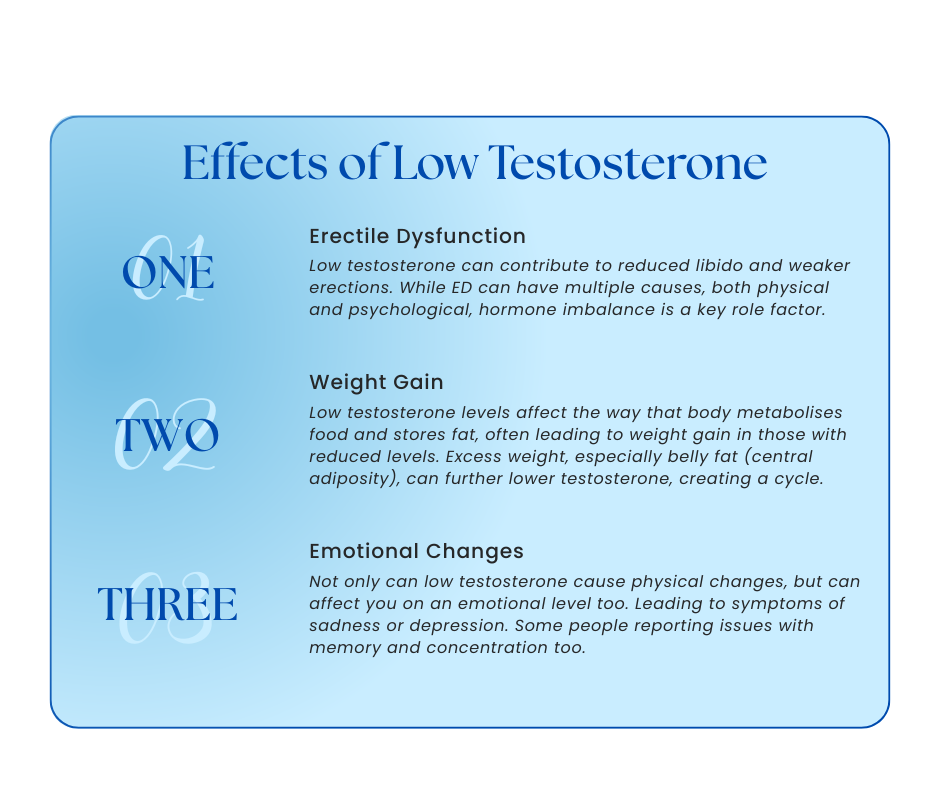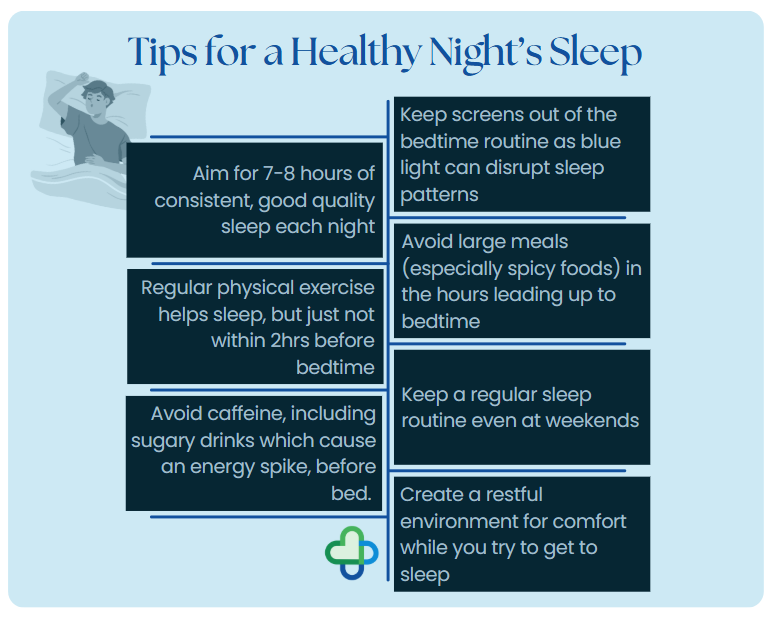Sleep and Testosterone: The Important Link Between the Two
We’ve always been told that sleep is important, but what do we really know about its link to our hormones? And specifically, the hormone testosterone? Testosterone plays a huge part in men’s health, and it’s important to understand how sleep and testosterone production are connected to ensure you’re making the most from those all-important Zs.
What is Testosterone?
While many know testosterone as the primary sex hormone, its role in men’s health is much broader. It helps regulate muscle mass, fat distribution, mood, red blood cell production, sexual health, and even hair growth. When levels dip; either naturally with age or due to factors such as lifestyle or disrupted sleep, the effects can be noticeable. Signs include reduced energy, weight gain, facial hair thinning, lowered libido, and erectile dysfunction.
How are Testosterone and Sleep Linked?
In short, they are heavily linked. Not just because of how much sleep you get, but the quality and timing of your sleep. Deep, restorative rest is particularly important. One study found that men who experienced just one week of restricted rest had daytime testosterone levels reduced by up to 15%, compared to natural age-related decrease of only 1% – 2%. Participants also reported symptoms such as low energy, reduced libido, and poor concentration. This was after just one week, long-term poor sleep can have chronic, lasting effects.
Most testosterone is released during the night, with levels peaking in the early morning hours. So, if your sleep quality is poor or your sleep duration is cut short, your body may not be able to maintain healthy hormone levels, leading to symptoms such as tiredness. A vicious cycle.
The Side Effects
We’ve already touched on many of the effects low testosterone can have, but how does it actually cause effects such as hair loss, weight gain, or erectile dysfunction?

So, What Can You Do?

The Bottom Line
Testosterone and sleep may not seem closely linked, but science shows how they’re more connected than we think. With symptoms such as low energy, weight gain, reduced libido, and even hair loss, maintaining regular, high-quality sleep is essential to support healthy testosterone production. It might just be the change you need to feel more like yourself again.







